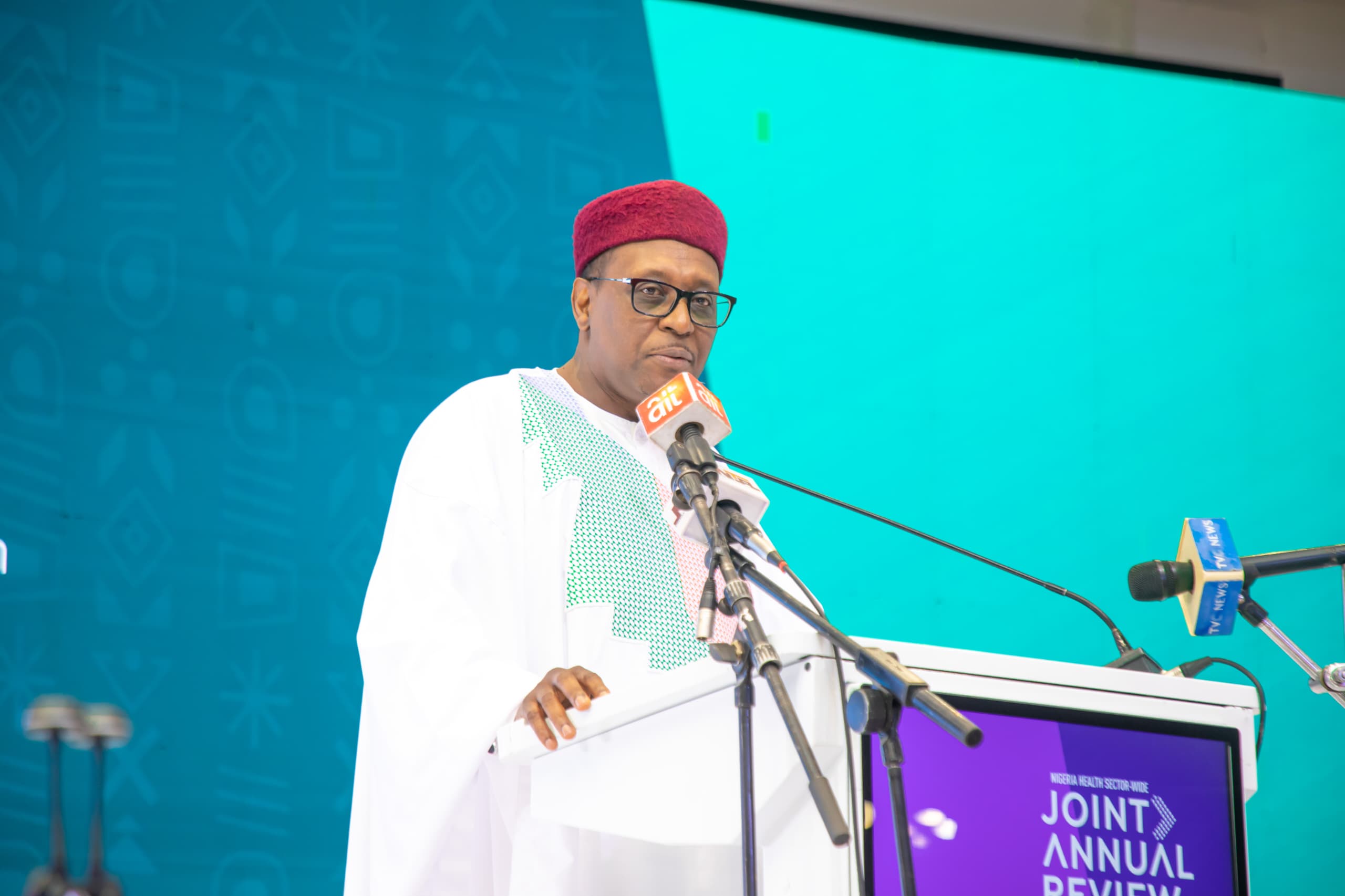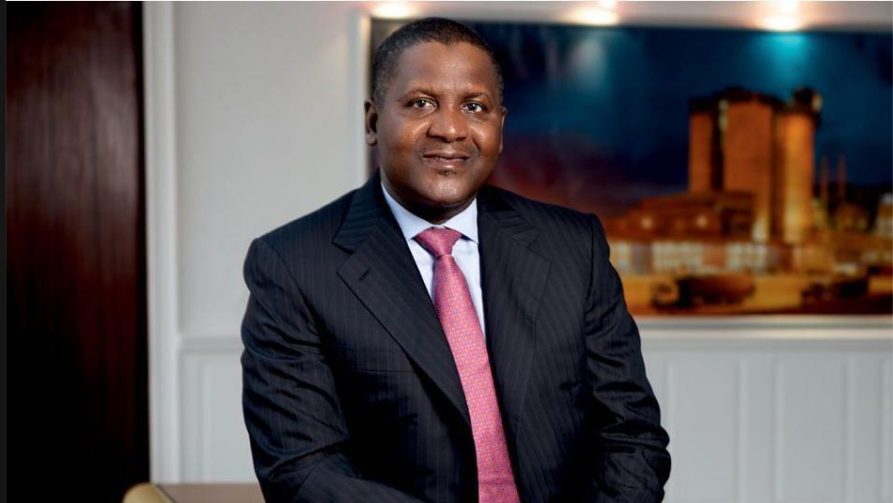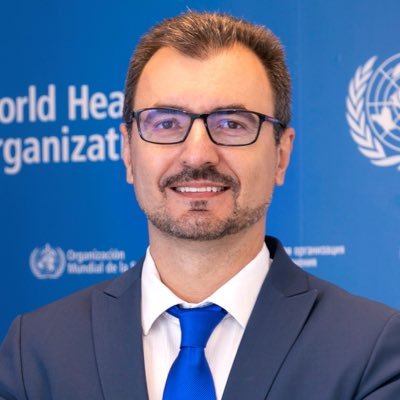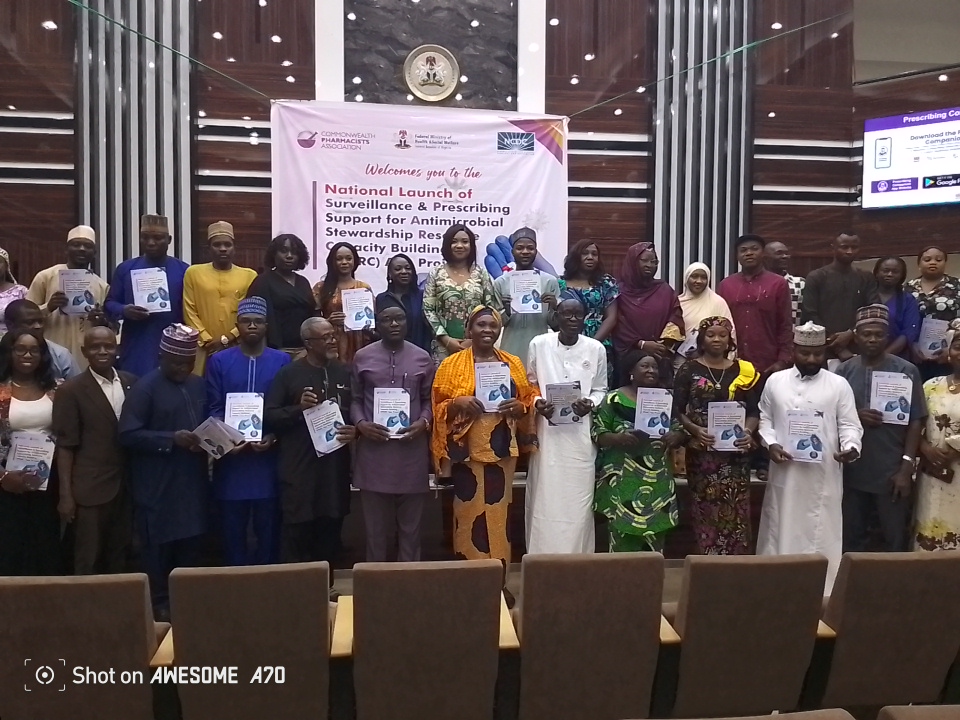
By Fatima Saka, Abuja
The Federal Government has reported remarkable progress in Nigeria’s ongoing health sector transformation, achieving 84 percent of its key performance indicators under the Presidential Health Sector Renewal Investment Compact as of the third quarter of 2025.
This was disclosed on Wednesday by the Coordinating Minister of Health and Social Welfare, Professor Muhammad Ali Pate, at the opening of the 2025 Nigeria Health Sector-Wide Joint Annual Review in Abuja, themed “All Hands, One Mission, Bringing Nigeria’s Health Sector to Light.”

Pate credited President Bola Ahmed Tinubu’s “visionary and decisive leadership” for what he described as “one of the most promising chapters in Nigeria’s health history,” adding that the sector is now driven by measurable results, accountability, and evidence-based planning.
“Under President Tinubu’s guidance, we are transitioning from fragmented, donor-driven programmes to coherent, nationally owned systems that deliver for Nigerians,” he said.
According to the Minister, 35 states and the Federal Capital Territory have successfully conducted Joint Annual Health Reviews and aligned their operational plans with the National Health Sector Strategic Blueprint. All 774 Local Government Areas now have National Health Fellows and Public Financial Management Officers, surpassing federal targets.
Pate revealed that maternal mortality has declined by 17 percent, and newborn deaths by 12 percent across 172 high-burden LGAs under the Miyami Model. Skilled birth attendance has improved by 33 percent, while over 4,000 free caesarean sections have been performed in NHIA-empanelled hospitals.
He added that emergency obstetric care is now covered under the National Health Insurance benefit package, eliminating one of the biggest barriers for women in need of life-saving care.
Visits to Basic Health Care Provision Fund (BHCPF) facilities surged from 10 million in early 2024 to 45 million by mid-2025, signaling growing confidence in primary health care services. Vaccination coverage has reached record highs, and Nigeria’s introduction of the HPV vaccine was hailed as a “global milestone.”
Nationwide surveys also show rising trust in government-led reforms — with 55 percent of Nigerians expressing confidence in the system’s direction and 67 percent believing the government is better prepared to manage health emergencies.
However, the Minister acknowledged that affordability remains a pressing issue. He disclosed that the government is scaling up social health protection through the Medical Relief Programme and expanded insurance schemes to reduce out-of-pocket payments.
Pate reaffirmed the Federal Government’s resolve to sustain momentum through local manufacturing of medicines and vaccines, recruitment of 20,000 new frontline health workers, and payment of ₦50 billion in arrears and allowances across cadres.
“Our mission is simple,” he said. “Put the Nigerian person at the centre of attention, if we do that, everything else will fall into place.”
The review concluded with a renewed Health Sector Renewal Compact endorsed by Local Governments, traditional leaders, private sector actors, and civil society groups, a continuation of the pact first signed in 2023 by the Federal Government, States, and development partners.
Pate closed the event with optimism: “We are not merely reforming Nigeria’s health system; we are rebuilding trust, restoring efficiency, and renewing hope for every Nigerian family.”
Coordinating Minister of the Economy and Minister of Finance, Wale Edun, announced that the health budget has grown by nearly 60 percent, with the BHCPF allocation jumping from ₦131.5 billion in 2024 to almost ₦299 billion in 2026, raising health’s share of the national budget from just over 3 percent to 5.2 percent.
“The turnaround in the economy has begun, and sectors like health are beginning to benefit significantly,” Edun said, urging states and local councils to invest more in health and education.
Minister of Budget and Economic Planning, Senator Atiku Bagudu, noted that Nigeria’s low revenue-to-GDP ratio, below 8 percent since 2007, has limited growth, but said reforms under the Renewed Hope Agenda aim to reverse the trend through revenue mobilisation and strategic investment in social sectors.
Minister of State for Health and Social Welfare, Dr. Adekunle Salako, highlighted ongoing infrastructure and system reforms, revealing over 500 new high-impact projects, 13 tertiary institutions, and six cancer centres of excellence established nationwide.
READ ALSO: Senate Moves to Streamline’s NEXIM, Insurance Laws in Nigeria
Group blames rising gender-based violence in Anambra on lack of data, shelters
He said the Renewed Hope Agenda is not just policy, but “a covenant to safeguard the health of Nigerians,” noting that digital health expansion and PHC revitalisation will save ₦4.8 trillion annually from preventable diseases and retain ₦850 billion lost to medical tourism.





